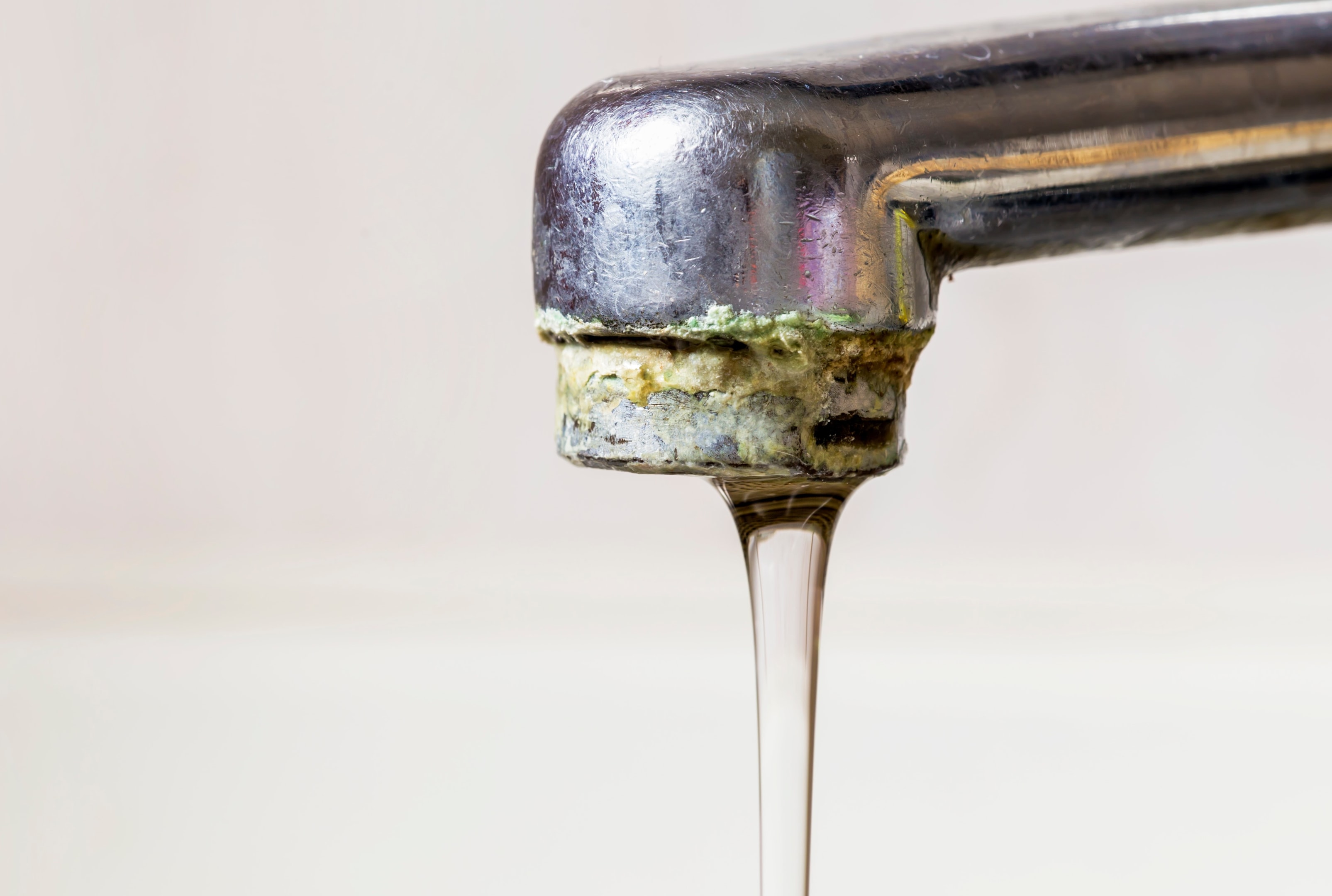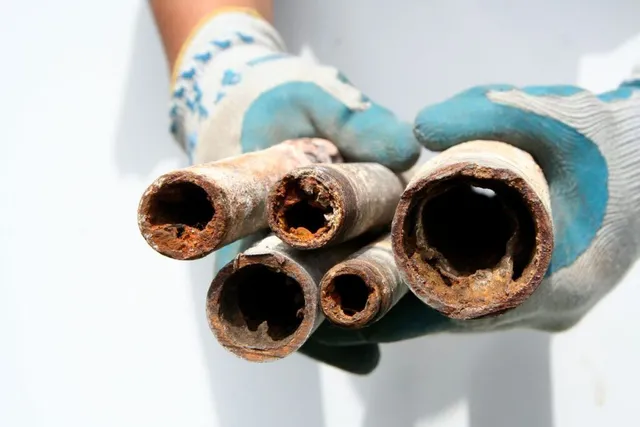Hard water is a common problem faced by homeowners all over the world. It is formed when water flows through deposits of limestone, chalk or gypsum, resulting in high levels of minerals such as calcium and magnesium. While these minerals are not harmful to human health, they can have adverse effects on plumbing systems and household appliances.
In this article, we will explore the impact of hard water on plumbing systems. We will discuss how hard water affects pipes, faucets, and other plumbing fixtures, and identify potential problems that can arise from prolonged exposure to hard water. Additionally, we will also provide tips on how to deal with hard water and prevent damage to your plumbing system.
What is Hard Water?

Hard water is a type of water that contains high concentrations of minerals, particularly calcium and magnesium. These minerals are picked up by the water as it flows through rocks and soil, resulting in hard water when it reaches our homes.
One way to determine if you have hard water is by looking for spots or film on dishes, glasses, and silverware after they have been washed. Hard water can also leave a residue on shower walls and faucets, making them difficult to clean. Another sign of hard water is soap scum buildup in sinks, tubs, and showers.
Also, the effects of hard water are not just limited to household chores. It can also have a significant impact on your plumbing system, causing damage and reducing its lifespan. Therefore, it is important to understand how hard water affects plumbing systems.
Does Hard Water Affect Plumbing Systems?
Yes, hard water can have a significant impact on plumbing systems. As the water flows through pipes and fixtures, it leaves behind mineral deposits that can build up over time. This buildup restricts the flow of water and can eventually lead to clogs and blockages.
Additionally, hard water can also cause corrosion in metal pipes and fittings. The minerals in hard water react with metals, causing them to corrode and weaken. This can eventually result in leaks and cracks in your plumbing system, leading to costly repairs.
Moreover, hard water can also affect the performance of plumbing fixtures such as faucets and showerheads. The buildup of minerals can clog the small openings, reducing water pressure and causing these fixtures to malfunction.
How Does Hard Water Affect Plumbing Systems?
The effects of hard water on plumbing systems are mainly due to the mineral deposits that it leaves behind. As these minerals build up, they can cause clogs and blockages in pipes, reducing water flow and potentially causing damage.
Furthermore, the corrosion caused by hard water can weaken pipes and fittings, making them more susceptible to leaks and cracks. This not only leads to expensive repairs but also puts your home at risk for water damage.
In addition, the buildup of minerals can affect the performance of plumbing fixtures such as faucets and showerheads. These fixtures may become clogged or have reduced water pressure, making them less efficient and potentially causing the need for replacements.
How to Deal with Hard Water?

There are a few ways to deal with hard water and protect your plumbing system from its effects. One option is to install a water softener, which removes the minerals that cause hardness from your water supply. This can help prevent the buildup of mineral deposits in your pipes and fixtures.
Another solution is to use vinegar or other natural cleaning agents regularly to remove any mineral buildup on faucets and showerheads. This can help maintain water pressure and keep your fixtures functioning properly.
Additionally, regularly checking for leaks and addressing them promptly can also prevent further damage to your plumbing system. If you notice any signs of hard water in your home, it is important to take action to address the issue before it causes major problems.
Additionally, it is essential to regularly maintain your plumbing system and have it inspected by a professional plumber. They can identify any potential issues caused by hard water and offer solutions to prevent further damage.
How A Professional Plumber Can Help
A professional plumber can provide valuable insight and assistance in dealing with hard water. They can conduct a thorough inspection of your plumbing system to identify any potential issues caused by hard water. They can also offer recommendations for water softening systems or other solutions to prevent damage.
Moreover, a plumber has the expertise and tools necessary to clean out mineral deposits from pipes, fixtures, and appliances. They can also repair or replace any damaged components that may have been affected by hard water.
Furthermore, regular maintenance and check-ups by a professional plumber can help detect and address any problems before they become major issues. This can save you time, money, and hassle in the long run.
Choose Boldt’s For All Your Plumbing and Heating Needs
Boldt’s Plumbing and Heating has been providing exceptional service and availability since its humble beginnings in the 1950s. With a focus on customer satisfaction, Our team of professionals proudly serves communities such as Afton, Clayton, Elmwood, Hudson, and more.
With extensive experience in Plumbing, Heating, and Air Conditioning systems, Boldt’s offers a wide range of services including installation, maintenance, repair, and testing. Our team is friendly and professional, always willing to go above and beyond to ensure that our clients are fully satisfied with the service they receive.
We take pride in our partnerships with top brands such as Lennox for Furnaces and Air Conditioners, Delta for Plumbing fixtures, Kohler for water heaters and much more. We also offer discounts through our Discount Club which provides year-round HVAC maintenance at discounted rates.
Choose Boldt’s for all your Plumbing and Heating needs in Baldwin, Hudson, and beyond. Contact us today for any emergency services or to schedule an appointment! We look forward to working with you and providing the best solutions for your home or business. Let our family take care of yours.
FAQs
How does hard water impact a hot water heater and other appliances like washing machines?
Hard water contains high levels of minerals that can build up over time in appliances like hot water heaters and washing machines. This buildup can reduce the efficiency of these appliances, leading to higher utility bills and potentially shortening their lifespan. The minerals slowly break down components and can lead to costly repairs or replacements.
Can installing a water softener system prevent clogged pipes in home plumbing?
Yes, installing a water softeners system can help prevent clogged pipes in your plumbing. Hard water minerals can accumulate and cause blockages, but a water softening system removes these minerals through a process called ion exchange, replacing them with sodium ions. This can significantly reduce the risk of clogged pipes and extend the life of your plumbing.
What are the benefits of using soft water in drinking water systems?
Using soft water in your drinking water systems can reduce the presence of minerals that contribute to scale buildup and unpleasant taste. Soft water is gentler on plumbing and is less likely to cause mineral accumulation in fixtures and pipes. Additionally, many find that soft water improves the taste of drinking water by removing excess minerals.
How does a water softening system work to protect copper pipes from mineral damage?
A water softening system works to protect copper pipes from mineral damage through a process called ion exchange. In this process, the system replaces calcium and magnesium ions, which are primarily responsible for hard water, with sodium ions. This prevents the minerals from depositing in the pipes, which can lead to reduced flow, corrosion, and eventually leaks in copper piping systems.
